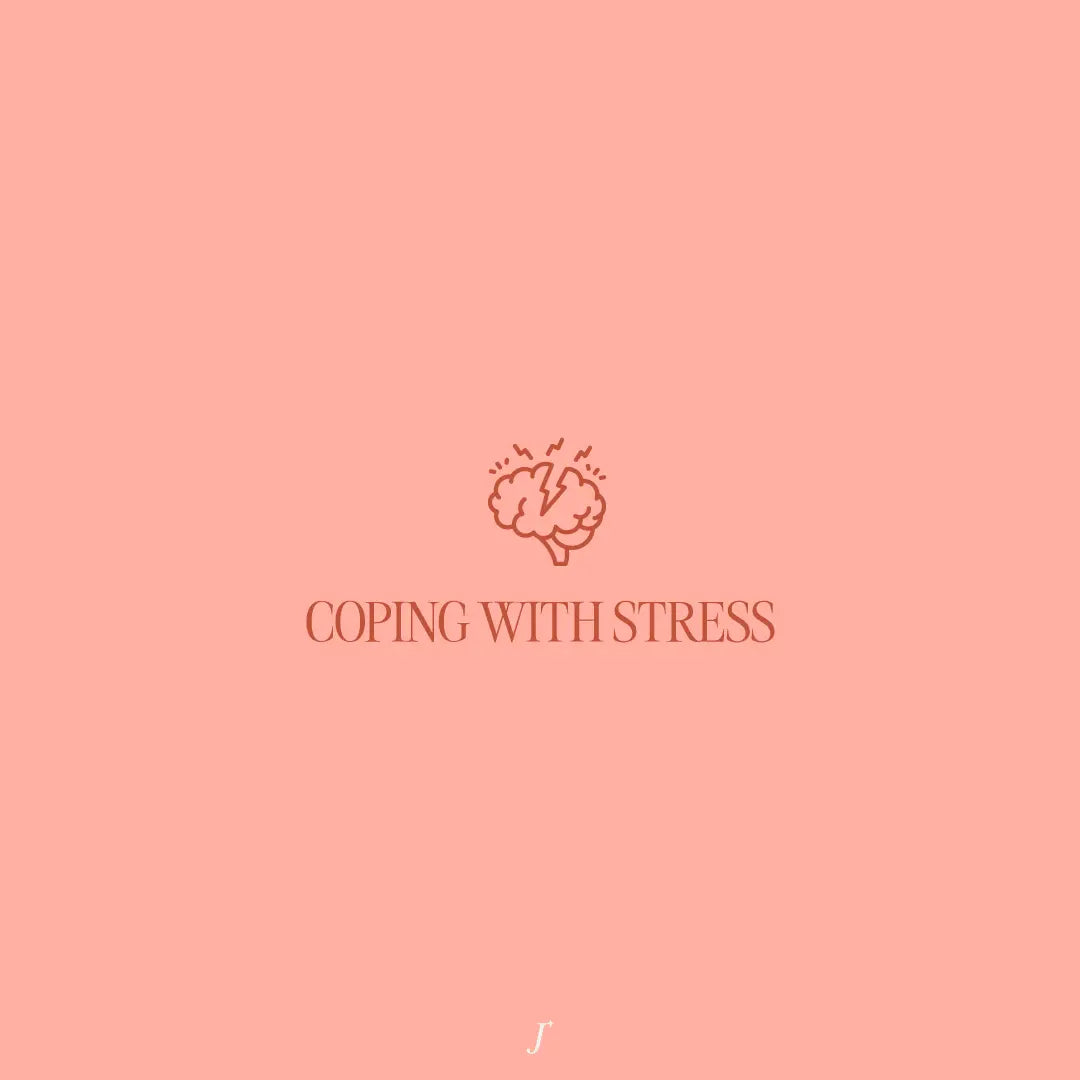Diagnose the Distractions: Types, Symptoms, & Treatments
[Insert analogy of a conversation with a loved one where you’re distracted with your phone.] I didn’t think I needed to actually describe this analogy in full because we all know how it goes. And though it may be cliché, it’s very very real. It is important to diagnose the distractions to know the types, symptoms, & treatments in the quest to triumph over distractions!
Our Father, desirous for some HTHT with you, sits there and waits while you finish scrolling through your IG feed for the 50th time today, finish worrying about this other thing you ‘should be’ doing, or finish wallowing in that mud-pool of criticism from your colleague.
What distracts you? Let's diagnose the distractions, look at the types, symptoms and treatments.
In truth, to be distracted from our spiritual walk is to temporarily, knowingly or not, idolise something other than God.
The intriguing thing is that being distracted isn’t always outwardly apparent. It may not look like anything at all! Because distraction is a state of being. Your day, actions, activities, and words spoken may be the same as any other day, but inside you are struggling to stay focused on Him. You may say the holiest things, use the most hip of Christianese buzzwords, and still be distracted.
I say again: Distraction is a state of being; it’s a posture.
But does distraction come spontaneously? Are there things we might have done or not done to contribute to a moment of distraction? BIG YES.
Here are some of what we would consider the most common and damaging distractions to our spiritual walk, and how to overcome them. Are you ready to diagnose the distractions? ◡̈
Distractions: Types, Symptoms, & Treatments

Diagnose the Distraction: Type One: FEAR
Symptoms:
I’m not talking about the biological fear built into us to keep us from physical harm, nor am I referring to the must-have fear of the Lord. The fear that distracts is an actual spirit - a sentient being - that grips your heart, paralyses you (metaphorically or literally), and amplifies the gravity (or ‘badness’) of a situation.
Though it is often based on an actual occurrence - perhaps a traumatic event that directly or indirectly affects us - it is often irrational and dramatic. This ungodly type of fear pulls us away from the Lord, and usually causes us to retreat into an isolated state.
Granted, not all fears are as serious as all that. But every influential spirit has a subtle side. That’s when fear is as Gollum would say, “Sneaky little spiritses…” Fear can manifest as a simple worry about a situation. It can manifest as a feeling of stress, when you are anxious and have decided not to trust in God to be able to come through for you in a situation. Essentially, a person in fear says, “I cannot trust God. He is not gonna make good on His promises.” No need for me to explain how that distracts us from faith in Him, yeah?
Treatment:
“God is our refuge and strength,
A very ready help in trouble.
Therefore we will not fear, though the earth shakes
And the mountains slip into the heart of the sea;
Though its waters roar and foam,
Though the mountains quake at its swelling pride.”
(Psalm 46:1-3)
-
Know who God is. He is El Shaddai, Almighty. Jesus is the name above all names, and we, being carriers of His name, have the authority to quench any fear that comes at us.
-
Know who you are. We are a royal priesthood. We are children of this Almighty God described in point 1. Knowing this would position us to not allow fear to be a distraction.
- Declare Scripture daily, not just when you are being distracted by fear (otherwise, that’s like starting your stamina training on the day of your marathon). Some passages we would recommend for this:
- Deuteronomy 3:16, Joshua 1:9
- Isaiah 43
- Psalm 23
- Psalm 27:1
- Psalm 34:4-5
- Psalm 46:1-3
- Psalm 56:3-4
- Psalm 91
- Psalm 112:6-8
- John 14:27
- 2 Timothy 1:7
- 1 John 4:18-19

Diagnose the Distraction: Type Two: BUSYNESS
Symptoms:
The routines of everyday life, hectic commitments that cause fatigue, and working for the sake of sustenance or simply for the sake of working - these can very easily distract us from inclining our ear toward the voice of the Holy Spirit. And the dangerous thing about busyness is that it often masquerades as noble, good, sacrificial, and productive.
How often has ‘hardworking’ been lauded as a cherished character trait? Make no mistake, it really is. However, people often confuse a ‘hardworking’ person with a person whose identity, sense of self-worth, and life purpose is their work, who disregards their own enjoyment (and often, wellbeing) in order to be productive, and who is so committed to their work that they would never compromise an ounce of it for literally ANYTHING. Of course, no one actually says it that way, but in the eyes of the world, that’s what ‘hardworking’ means.
Routine is not a bad thing. Neither is a good work ethic. Nor commitment, nor productivity! It’s when these things are taken to an unhealthy level, when we give our work a disproportionate amount of influence in our lives, that it really begins to creep into the throne in our hearts reserved only for One.
Treatment:
-
Identify the problem. What is the root cause of your busyness? Does being productive give you a sense of worth? Does it determine your identity? Once you know the root of it, you have a target to aim at.
-
Realise your identity and self-worth is not determined by anything you can ever do, but by Christ’s death and resurrection. It was His work that made you a child of God, not your work. Ask the Holy Spirit to make this truth real to you in your heart.
-
If you’re a ‘I will never compromise on my routine’ person, things are a little easier. Make the most of this strength and set aside time to engage in the spiritual disciplines such as prayer and reading the Word. Once it’s part of your routine, and you won’t compromise it, you’d already be on the road to getting and staying focused on Him.
- Whether or not point 3 applies to you, one thing that will help is to understand how interwoven the spiritual life is to our practical / work life. Point 3 does not apply to me - routine and I have a love-hate relationship - but this one thing has really helped me not get swept away by the distraction that work can become: I resolve daily to work together with the Holy Spirit. There isn’t a specific thing that must be done for this to happen - it’s simply choosing to be aware of the Spirit’s presence with you 24/7. Yes, it’s just being aware! Try it and you’ll be surprised how His presence magnifies your creativity and productivity!

Diagnose the Distraction: Type Three: EXCESSIVE INDULGENCES
Symptoms:
Just as productivity, good work ethic, and routines aren’t inherently bad, neither is indulgence. God Himself created things for His pleasure, and among them, some of the most beautiful things in existence: us! He is not against pleasure or indulgence. He created so many things for us to enjoy - food, relationships, art, nature, and others.
It’s when these indulgences consume us that they begin to distance us from the heart of the Father. Though He created pleasures for us to enjoy, He designed for them to be an avenue for us to get to Him, so that we may know His beauty and love; it was not to pull us away from Him.
After all, Psalm 16 tells us that in God’s ‘right hand are pleasures forevermore.’ And who sits on the right hand of God? Yes, Jesus. Jesus is the supreme source of all true and lasting pleasure - and God wants us to realise this truth, instead of indulging in pleasure for the sake of pleasure. Again, indulgence and pleasure was designed to draw us to Him, not pull us away from Him.
Treatment:
-
Once you understand the principle of Jesus being the supreme pleasure of our lives, choose to make Him your new preoccupation. It’s very difficult to deal with an excessive indulgence in your life unless you displace it with another. We were not created to not enjoy ourselves - pleasure is an inbuilt need of your soul. Thus, it’s not about taking that excessive indulgence away, but displacing it with another. And what better indulgence to be preoccupied with than Jesus?
(Tip: Approach this step with openness, a conviction that life with Jesus can be incredibly pleasurable. If you come with the mindset that this is stupid or impossible, you will never be able to displace an existing indulgence, no matter how hard you try.)
Your new preoccupation (Jesus) should lead to a change of posture - where once you would be in a state of being distracted, you would now be enjoying and focused on the presence of the Lord moment by moment.
-
If this indulgence is something you feel at peace with keeping in your life, you will still need to build up some boundaries so that it doesn’t become excessive. Set time limits, or even space limits, and really really stick to them. How hungry you are for change will determine how motivated you are to abide by your own rules (because those are the easiest to break).
- Allow someone you trust to hold you accountable for these indulgence boundaries. This makes breaching of boundaries much more difficult. Approach them and tell them your struggle, as well as your boundaries. Ensure they understand the situation, and give them the authority to speak into your life, to correct you, and to restrict you, if it ever comes to that.

Diagnose the Distraction: Type Four: LIES
Symptoms:
Lies are un-truths that have been spoken or released to you somehow, by others, the enemy, or by yourself. Lies contradict the Word of God, and are used to shake your understanding of truth. Lies attack the mind, and they originate with Satan, aptly dubbed the Father of Lies.
Lies can enter your life or heart directly, through words spoken by people or whispered by demons. They may also enter through more subtle means, such as a repeated event that gradually imprints an idea in your mind that reinforces itself over time.
For example, I’ve heard of someone who believed the lie that when she reads the Bible, something bad will happen to a loved one. The seed of this lie may have been sown when it happened once when she was a child. Perhaps then it happened again later on. Somehow she drew the connection between Bible-reading and family mishaps. The repeated events reinforced the lie further, and so on. Sure, it did happen, but in order for this lie to become a bondage to her, the enemy could have manipulated circumstances such that this correlation appeared to be real, in order to prevent her from reading the Bible. Again, this is just an example, but perhaps you can think of similar lies you’ve believed in?
Treatment:
-
Create a table with 2 columns. On the left is where you’ll write out all the lies currently distracting you. List them out, be specific, clear, and honest. Then, on the right column, for each lie, write down the corresponding truth according to God’s Word (not our own imagination or logic, because those are fallible). If you are unable to find a passage of Scripture, simply write down the opposite of that lie.
For example, a lie on the left might be “I don’t and will never amount to anything.” Then, the corresponding truth would be, “I was worth Jesus dying on the cross for me, and that means His love for me is vast, undying, and unfailing,” or “In my weakness, His strength is made perfect in me.”
Yes, this will require some research as you search the Scriptures for truths you need. But trust me, your process of doing so is already the first step in treating this distraction of lies.
-
As often as you can (not just when you feel distracted by the lies), recite the truths in the right column aloud. The Bible teaches us that there is power in declaring the truths of God into our lives; over time these will become more and more deeply embedded in our spirits.
-
When lies are threatening to distract you, cancel them! No, not on social media. Proverbs teaches us about the power of words, and since we carry the authority of Christ, we carry the power to prevent the lies from influencing us.
Here’s a simple script you may use if you are unsure of what to declare / say:
“The Father of Lies, and the lie that says [describe it], I rebuke you right now in Jesus’ name! You have no foothold or influence in my mind! I declare that [corresponding truth]!” It may sound stupid to you, but that’s really just another lie that enemy tells you to keep you from rebuking him.
TL;DR - Distractions are BAD!
The four types of distractions explained here are the most common ones - Fear, Busyness, Excessive Indulgences, and Lies.
There’s a different way to deal with each of them. Identify which distraction(s) applies to you, and try out the practical treatment methods described. Try it and let us know how it goes!





Leave a comment
This site is protected by hCaptcha and the hCaptcha Privacy Policy and Terms of Service apply.